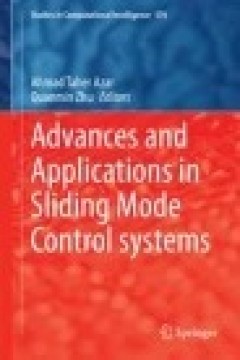Filter by

Chaos Modeling and Control Systems Design
The development of computational intelligence (CI) systems was inspired by observable and imitable aspects of intelligent activity of human being and nature. The essence of the systems based on computational intelligence is to process and interpret data of various nature so that that CI is strictly connected with the increase of available data as well as capabilities of their processing, mutual…
- Edition
- -
- ISBN/ISSN
- -
- Collation
- -
- Series Title
- -
- Call Number
- 620

Computational Intelligence Applications in Modeling and Control
The development of computational intelligence (CI) systems was inspired by observable and imitable aspects of intelligent activity of human being and nature. The essence of the systems based on computational intelligence is to process and interpret data of various nature so that that CI is strictly connected with the increase of available data as well as capabilities of their processing, mutual…
- Edition
- -
- ISBN/ISSN
- 978-3-319-11017-2
- Collation
- -
- Series Title
- -
- Call Number
- -

Brain-Computer Interfaces : Current Trends and Applications
The success of a BCI system depends as much on the system itself as on the user’s ability to produce distinctive EEG activity. BCI systems can be divided into two groups according to the placement of the electrodes used to detect and measure neurons firing in the brain. These groups are: invasive systems, electrodes are inserted directly into the cortex are used for single cell or multi unit …
- Edition
- -
- ISBN/ISSN
- 978-3-319-10978-7
- Collation
- -
- Series Title
- -
- Call Number
- 611.8

Advances in Chaos Theory and Intelligent Control
The book reports on the latest advances in and applications of chaos theory and intelligent control. Written by eminent scientists and active researchers and using a clear, matter-of-fact style, it covers advanced theories, methods, and applications in a variety of research areas, and explains key concepts in modeling, analysis, and control of chaotic and hyperchaotic systems. Topics include fr…
- Edition
- Ed. 1
- ISBN/ISSN
- 978-3-319-30340-6
- Collation
- XII, 873
- Series Title
- Studies in Fuzziness and Soft Computing
- Call Number
- 006.3 ADV a

Advances and Applications in Sliding Mode Control systems
This book describes the advances and applications in Sliding mode control (SMC) which is widely used as a powerful method to tackle uncertain nonlinear systems. The book is organized into 21 chapters which have been organised by the editors to reflect the various themes of sliding mode control. The book provides the reader with a broad range of material from first principles up to the current s…
- Edition
- Ed. 1
- ISBN/ISSN
- 978-3-319-11173-5
- Collation
- XI, 590
- Series Title
- Studies in Computational Intelligence
- Call Number
- 006.3 ADV a
 Computer Science, Information & General Works
Computer Science, Information & General Works  Philosophy & Psychology
Philosophy & Psychology  Religion
Religion  Social Sciences
Social Sciences  Language
Language  Pure Science
Pure Science  Applied Sciences
Applied Sciences  Art & Recreation
Art & Recreation  Literature
Literature  History & Geography
History & Geography